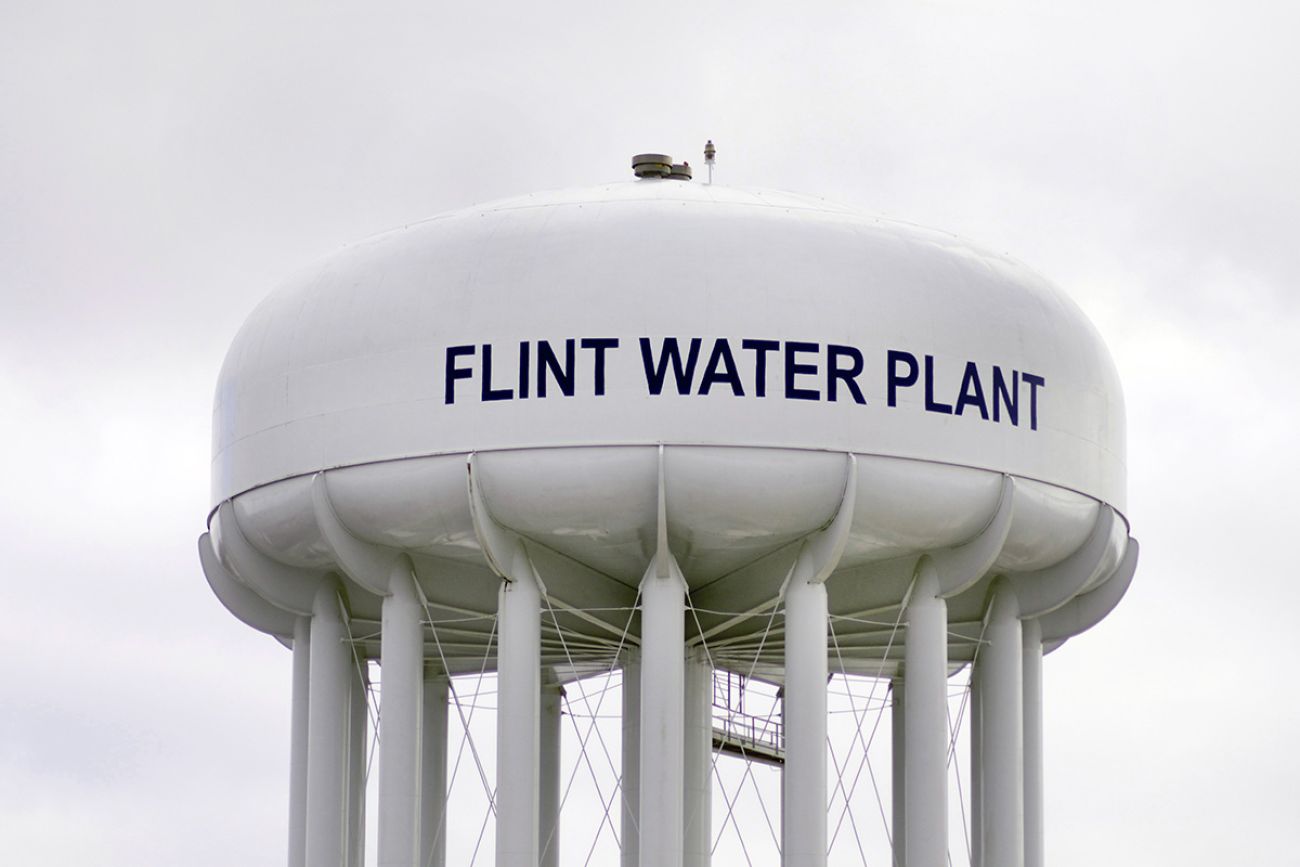Flint residents reach $25M settlement with engineers in water crisis case


- Engineering firm Veolia North America has reached a $25M settlement with Flint water crisis plaintiffs
- Claimants who were minors at time of crisis will get $1,500 apiece
- The deal brings total settlement funds in Flint above $655 million
Flint residents have reached a $25 million settlement with an engineering firm involved in the city’s water crisis, resolving a class-action lawsuit that dragged on for eight years just two weeks before it was set to go to trial.
The company, Veolia North America, was one of two holdouts in 2021, when Flint plaintiffs reached a settlement with the state of Michigan and other defendants about the crisis that allowed lead to leach into the city’s water supply.
The other holdout, engineering firm Lockwood, Andrews & Newman, settled in October 2023 for $8 million.
Veolia’s decision to settle before a trial, which was set to begin on Feb. 13, brings the total class-action settlement pot for Flint to more than $655 million.
Related:
- The Flint effect: Feds propose eliminating U.S. lead pipes within 10 years
- Flint water cases doomed by missteps from Dana Nessel’s office, experts say
- No convictions for Flint: Attorney general ends water crisis prosecutions
The settlement is expected to resolve claims brought by about 45,000 people and includes payment of $1,500 apiece, not to exceed $1.5 million in total, for claimants who were minors at the time of the crisis.
A company statement on Thursday said “VNA welcomes this opportunity to put the class litigation behind it” but maintained that “VNA stands by its work in Flint.”
“The water crisis was a failure of government, from Gov. Snyder to the bureaucrats on the ground,” the statement read.
In a statement, Ted Leopold, a lead lawyer for the plaintiffs, called the settlement “an important step forward to bringing a close to the horrible years of nightmares for the Flint community.”
But Leopold said the “fight for justice continues” as Flint residents press on with a separate lawsuit against the federal Environmental Protection Agency. U.S. Distirct Judge Linda V. Parker is presiding over that case in the Eastern District of Michigan.
The Veolia settlement will be administered as part of the ongoing claims process arising from the previous settlements with the state and other parties, said Steve Morrissey, a lead lawyer for plaintiffs.
The claims process is still ongoing, Morrissey said, with thousands approved so far but many more that were sent back because of missing information or other issues.
Morrissey said lawyers are working with claimants to fix those errors, in hopes of making payouts before the end of the year.
Flint’s water crisis began in 2014, when a state-appointed emergency manager approved the city’s switch from Detroit’s water supply to the Flint River, without requiring anti-corrosion chemicals to prevent lead from leaching out pipes.
The city hired Veolia to help the city fix its water quality problems. Plaintiffs contended that Veolia failed to identify corroding pipes and ignored signs of contamination, including a deadly Legionnaires’ disease outbreak and residents’ complaints of foul-smelling, discolored water.
The crisis prompted a wave of regulatory changes at the state and national level, as government officials sought to avoid future catastrophes in a nation teeming with lead-containing water pipes.
Just two months ago, the EPA announced that utilities across the country have 10 years to remove pipes containing the neurotoxic metal.
Michigan Environment Watch
Michigan Environment Watch examines how public policy, industry, and other factors interact with the state’s trove of natural resources.
- See full coverage
- Subscribe
- Share tips and questions with Bridge environment reporter Kelly House
Michigan Environment Watch is made possible by generous financial support from:
Our generous Environment Watch underwriters encourage Bridge Michigan readers to also support civic journalism by becoming Bridge members. Please consider joining today.
See what new members are saying about why they donated to Bridge Michigan:
- “In order for this information to be accurate and unbiased it must be underwritten by its readers, not by special interests.” - Larry S.
- “Not many other media sources report on the topics Bridge does.” - Susan B.
- “Your journalism is outstanding and rare these days.” - Mark S.
If you want to ensure the future of nonpartisan, nonprofit Michigan journalism, please become a member today. You, too, will be asked why you donated and maybe we'll feature your quote next time!




